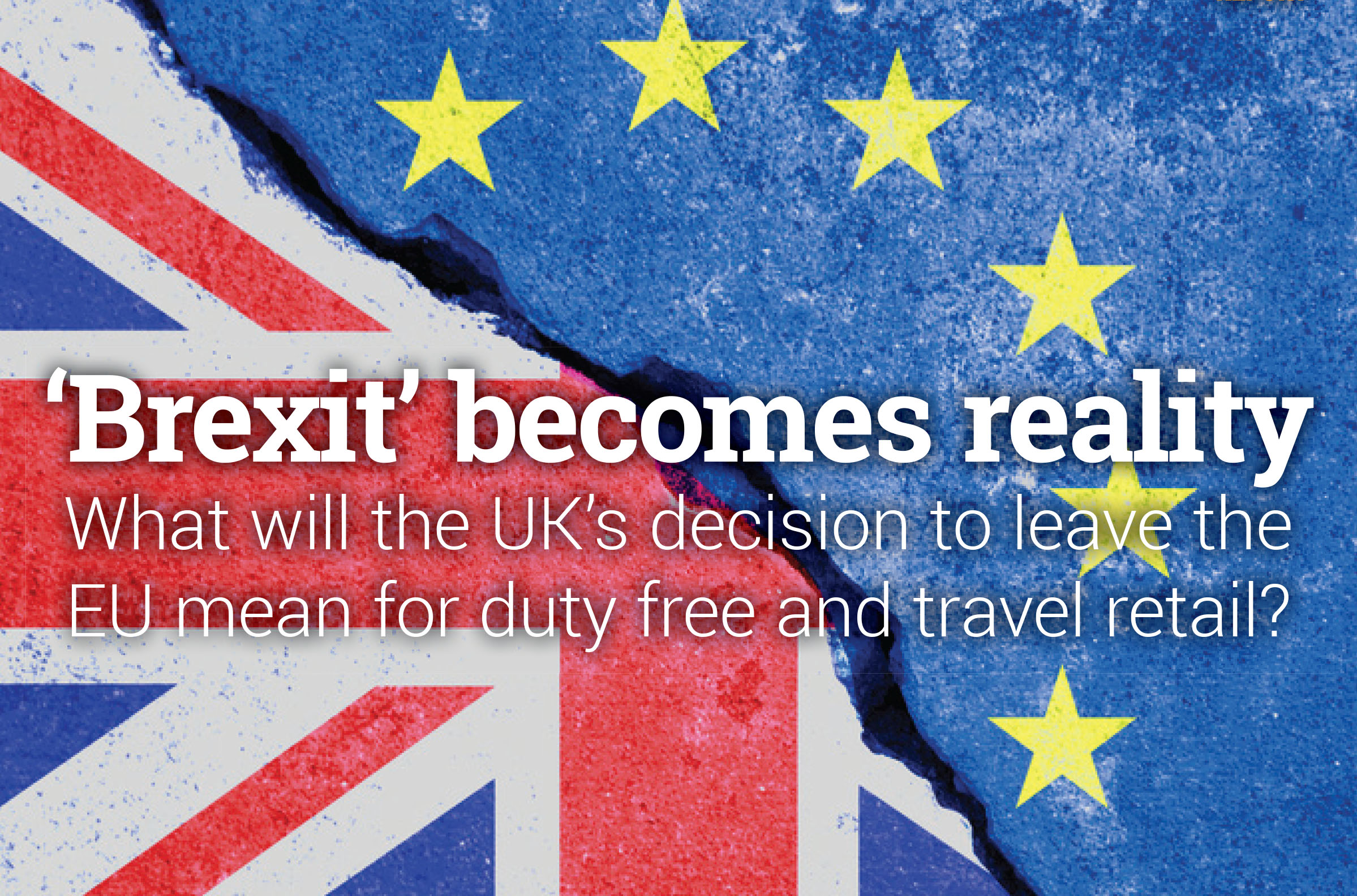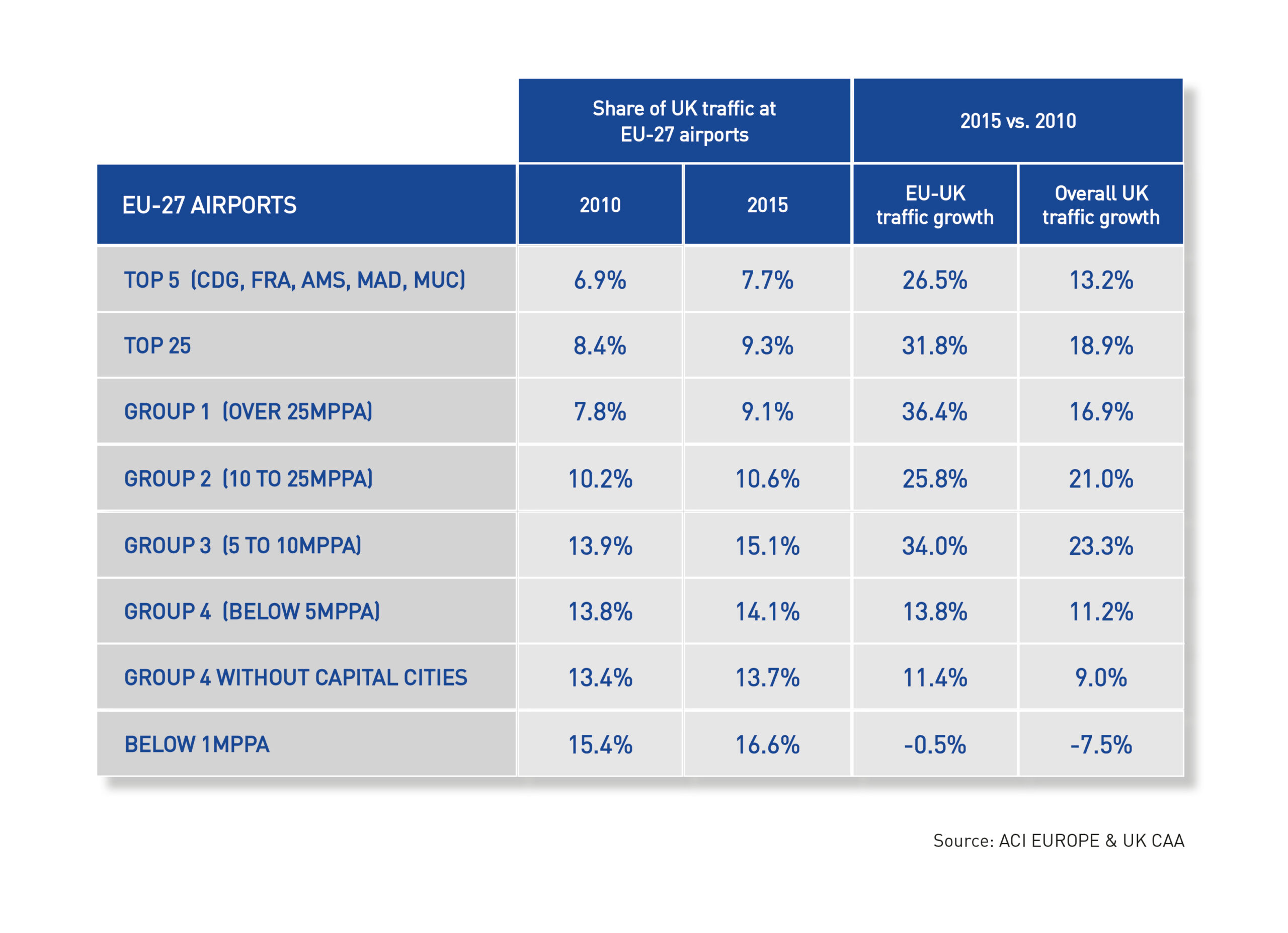 EUROPE. Airports Council International (ACI) Europe Director General Olivier Jankovec has called on officials negotiating the UK’s exit from the European Union (EU) to prioritise aviation.
EUROPE. Airports Council International (ACI) Europe Director General Olivier Jankovec has called on officials negotiating the UK’s exit from the European Union (EU) to prioritise aviation.
Speaking at the ACI Airport Economics & Finance Conference this week, Jankovec said ongoing uncertainty over the rules that come to govern aviation between the UK and Europe post ‘Brexit’ must be clarified quickly to avoid airport route development constraints.
His comments followed Monday’s announcement by British Prime Minister Theresa May that Article 50 of the Lisbon Treaty will be triggered on 29 March, officially informing the EU of the UK’s intention to withdraw from the union.
“The ‘sequencing’ of the Brexit negotiations means talks will initially focus on agreeing exit terms for the UK, before they eventually come to define the new relationship between the UK and the EU27 as of 2019,” noted Jankovec.
“This implies that the aviation industry will be left in the dark for many more months to come about what will happen. Unless quickly resolved, this uncertainty will end up constraining route network development for airports, ultimately affecting air connectivity for their communities. This is due to the fact that airline route planning requires both long lead times and legal certainty.”
[inarticlelink image=”https://www.moodiedavittreport.com/wp-content/uploads/2017/03/Screen-Shot-2017-03-09-at-12.35.08.png” heading=”EU-UK duty free set for post-Brexit return but plenty of hard work required first” summary=”And there, slap bang in the middle of this upheaval is the duty free sector, potentially given the unlikeliest of lifelines.” link=”https://www.moodiedavittreport.com/eu-uk-duty-free-set-for-post-brexit-return-but-plenty-of-hard-work-required-first/”]
ACI Europe said the two-year deadline could result in market access falling back on more restrictive bilateral provisions between the UK and individual EU27 states. This could have disruptive effects on air connectivity and the economy, it noted.
Passengers could find themselves having purchased air tickets that airlines might not be able to honour in the absence of an appropriate legal basis for them to fly, the council warned.
“As responsible businesses, at this stage we simply cannot rule out a cliff-edged scenario for Brexit and aviation,” argued Jankovec.
“The potential impact of this on air connectivity, consumers and the wider economy needs to be addressed by Brexit negotiators – on both sides. This means that adequate contingencies need to be established promptly in case the UK would exit the EU without any agreement on its future relationship with the bloc.”
UK and Europe’s aviation interdependence

ACI Europe highlighted the aviation interdependence between the UK and other EU nations to underline the importance of achieving clarity on Brexit’s repercussions.
More than one in every two passengers handled by UK airports are flying to/from the EU27, it said, while more than one in ten passengers handled by EU27 airports are flying to/from the UK.

The markets most reliant on air traffic to/from the UK, according to the council’s figures, are: Ireland (39.2%), the Slovak Republic (33.2%), Cyprus (31.3), Malta (27.9%), Poland (20.2%), Lithuania (19.8%) and Spain (17.3%).
The trade association also estimated that air traffic between the UK and the EU27 supports 270,000 jobs in the UK and is associated with €15.4 billion of the country’s GDP. Air traffic reportedly supports 285,000 jobs in the EU27 and is associated with €13.7 billion of the bloc’s GDP.

Jankovec said the contribution of aviation to both the UK and the EU27 economies depends on the freedom to fly and unrestricted market access for airlines, as well as “a wide range of common rules”.
“These common rules are an essential part of the fabric of European air transport. They avoid costly duplication and conflicting requirements,” he commented.
“Let’s be clear: losing this integration between the UK and EU aviation markets is akin to putting an end to a relationship which creates tremendous value and brings extensive mutual benefits.”












